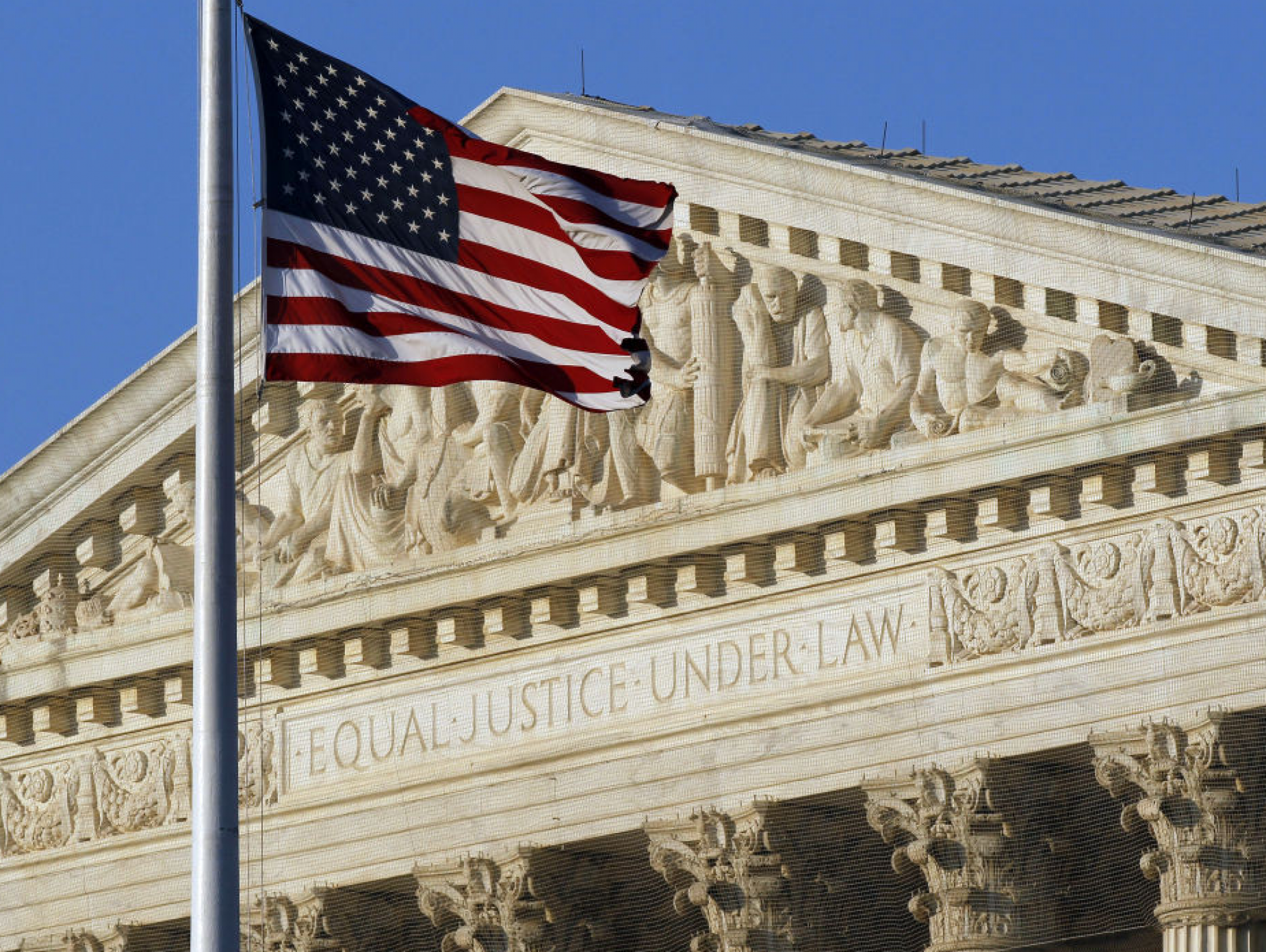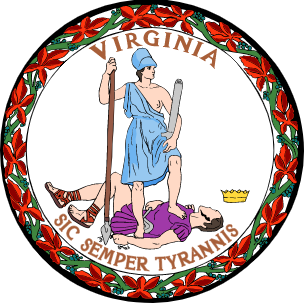“Behind the judge’s bench stands an American flag, a Virginian flag and, on the wall, the state seal. A woman with a spear, a helmet, and an unbound breast is trampling a man beneath her, with Latin words meaning ‘thus ever to tyrants.’ John Wilkes Booth said that phrase when he pulled the trigger. Aidan Lawrence echoed those words when he detonated a vest filled with fishing weights and Semtex in the Supreme Court. And yet here the words stay, suggesting bloodshed is not only part of legal proceedings but somehow can give them a blessing.”
—Civil Blood: The Vampire Rights Case That Changed a Nation
Note: This post contains spoilers for Civil Blood‘s ending.
When you have a novel with only a handful of reviews, you have the luxury of reading and thinking about each one. Civil Blood is still in that magical period where nobody who really hates it has given it a review on Amazon, so the people who really love it give it five stars and the people who have reservations go for four stars. Naturally, I’ve mulled over the points of the criticism, because I think it’s good and healthy for a book when its discussion goes beyond “I liked it” vs. “this is trash” and readers spend some time on the ideas presented in the story.
Recently, I read a review that didn’t care for the ending, which made the reader disturbed that all the good guys appear to be bad guys, and the bad guys appear to be good guys. So let’s talk about that!
Civil Blood has a lot of ideas in it, and hopefully they are comprehensible to an audience without me explicating the intention of the text. But since this website allows me to be as self-indulgent as humanly possible, and since no literary critics are beating down my door for an interview, I thought it might be interesting to the reader to illuminate the theme of the novel, which, really, is the road to political violence in the United States.
“Whoa,” you may be saying. “It’s just a novel about vampires.”
Yes, and no. It’s even a little farther afield than that. It’s a novel about a future America with magic and vampires in it. Whenever one creates a vision of the future, it tends to invite comparisons and analysis with the present. I gave it the nonspecific time period of “a generation from now” because I didn’t want the story to be obsolete too quickly. I did use a calendar for a specific date far in the future to get the days of the week straight, but that is not explicitly called out in the text. (First person to name the year gets a gold star.) The idea is, the future is slightly darker than it is now, but the U.S. is, as the back cover copy states, “still recognizable as our own.”
The political system has changed, to be sure. At some point in this future history, the Democratic and Republican parties imploded at the same time. At that point, the first-past-the-post system of counting electoral votes was chucked, allowing for more proportionate representation in Presidential elections. I think this is the only way you’d get new, viable parties, because currently the hyper-partisanship means if either party has a substantial defection to a third party, the opposing party gets rewarded with electoral victory. And the reason they both imploded is because they started using violence to get what they want. In my imaginary world, this was a bridge too far, and both the red and blue parties paid at the ballot box, spawning the Solar Citizens party (liberals with an emphasis on environmentalism) and the Great Nation party (conservatives who embraced big government).
But the world-building bits aren’t quite as important as the theme expressed through the characters, that “civil blood makes civil hands unclean.” Violence, or the threat of violence, underpins our system of laws. If you violate the law, you have reason to fear that the state will punish you. If you resist sufficiently, the state will use violence to ensure the punishment is enacted. We’re supposed to elect our politicians with the consent of the governed, but unsurprisingly, we don’t trust them much any more. Conditioned by movies, games, and books as well as our preferred brand of political propaganda, we want a leader who is not just a civil servant, but a hero.
The book offers up many point-of-view characters who are the hero of their own story. But to others, they aren’t. And this is where the reviewer didn’t really like the way I executed the climax and resolution. Most of the characters are morally gray — there is, in fact, something to dislike in all of them. There’s plenty of bloody hands to go around.
Morgan expects the justice system to save him: it does not. It is flawed, and the vipes resort to criminal means in their attempt to rescue him. In the process, Infinity and the gang are, to varying degrees, willing to use violence. While the average reader may think Infinity is justified in striking back against a corrupt system, and is heroic for standing up to the forces that murder vipes, she is a protagonist, not a paragon. And I don’t mean this in a 2016-era “you shouldn’t punch Nazis or you’re as bad as them” way. Infinity’s tools include heist-like tricks to get her inside the BRHI facility, but they also include Cass, who covers the vipes by gunning down private security and committing suicide by cop.
“So,” one might ask… “are you portraying that as permissible, or not?” A lot of the language in the climax shows that Infinity is growing into her role as a hero. However, the picture is much more complex than “evil megacorporation = bad, heroes who break the law and shoot them = good.” I was not interested in making a vampiric superhero with an upstanding moral code, as there are plenty of those already available at the local bookstore or theater.
Infinity performs at least one heroic action. When she’s getting Morgan out of the facility and has a clear path to freedom, she chooses to run back into danger, armed only with a disguise, to save Ranath’s life. She sees this as necessary to redeem herself from her habit of running from trouble. Even so, she and her friends don’t succeed in their rescue mission the way they intend. Three out of five of the vipes pay the ultimate price, leaving Morgan and Ferrero grief-stricken. Infinity is numbed by the human cost as well, but her heroism has left her with a direct, tangible accomplishment: Ranath is present to console her, and he gives her a little hope. So despite her early protestations that she is not a hero, she has some reasons to call herself that at the end. Ranath would probably call her that too.
But one of the reasons I went with multiple first-person points of view is to show that when it comes to the events of the climax — the incarceration and murder of vipes and the bloody shootout that exposes it to the world — you can’t just look at just one character. Pretty much everyone tries to do what they perceive as right and it leads to an unholy mess.
- Cass thinks that because he’s just shooting hardasses with guns, he’s more like a soldier and less like a maniac with a high-capacity magazine.
- Jessica and Ferrero try to avoid violence personally, but they are in on the plan.
- Kern thinks because he can “cure more diseases than penicillin” with VIHPS, incarcerating and murdering vipes is worth it in the final analysis.
- Morgan abhors violence, but realizes he can’t escape without it and raises a hand in an attempt to save Jessica.
- Deborah takes it one step further, using a pistol only in a gambit to become a martyr rather than face capture.
This last was important to me because it’s easy for an action writer to get caught up in the bloodshed and portray noncombatants as timid, or ineffective, or dependent upon the violent types to effect meaningful change for the people they care about. The most important blow against BRHI is Deborah’s, bringing out the truth and harming its public status as a savior. In this way, I wanted to return the reader’s perception of the future not as one that is unremittingly dark, but one that ranges back and forth with victories and losses as does our political system in the real world.
As for the idea that Kern is a hero because he wants to cure VIHPS and get stinking rich by alleviating untold suffering — no. Kern is directly responsible for the F-prot program, which is kidnapping, killing, and experimenting on vipes. He set up a system to glean as much biological data as he can out of the vipes because “they’re going to die anyway,” which is only true because he’s laid the groundwork to make it true.
Besides violating the Hippocratic Oath, Kern’s excuses were based on the justifications Nazi doctors used for their experiments in concentration camps — data that was then largely thrown out by the Americans because it was always done with a political agenda in mind, making for bad science. He’s literally got a plasma furnace to cremate rooms full of bodies en masse, echoing the extermination camps. Also, he ordered a hit on Ranath when he was afraid Ranath might talk to the law, so he’s not particularly loyal to his friends, either. He shows no mercy to anyone who is perceived to be an enemy, and the simple act of getting infected makes you an instant enemy. (This “othering” occurs in our political process, albeit more slowly, as we come to think of our political opponents as villains, a process that will lead to violence if left unchecked.)
So yes, he’s an antagonist with a compelling motivation and a set of ideals — but everybody has ideals. What he’s done, rather than what he’s said, sets him in the villain camp, despite all the good that a vaccine or modified VIHPS strain could do. Illustrating this, Ranath takes his work and literally gives it to someone else less compromised, the Centers for Disease Control.
I could probably go on about this theme for a long time — it’s something I intend to explore in future stories, and America’s relationship with violence can fill quite a few shelves. But I think for the moment, I will stop here. There’s only so much illumination you can give before the light starts to get annoying.
Click.


I’m a big fan of morally grey, it’s a realistic look at people and I thought all of the written individuals and exploration of public reaction and politics were well done. The book asks a lot of moral and ethical questions that are tough to answer. My main quibble would be I’m not entirely sure that first person was the best way to tell the story, there were several moments where I had to double check which character’s point of view I was reading as some of the voices blurred and weren’t always distinct from each other. I still gave it 5 stars for originality and the asking of hard questions and the overall execution was good even if there was some failure of an emotional hook in some scenes due to first person voices being too generic, if that makes sense.